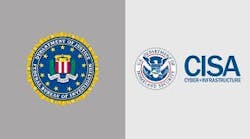On a technological level, our industry has been working with and developing systems that allow your access control system to talk to your CCTV system to talk to your public notification system to talk to the local police and even your cell phone or Blackberry. Now, says Senator Saxby Chambliss (R-Ga.), the same has to happen at the national security level so that the intelligence community can effectively share information.
"Intelligence reform has just begun," said Chambliss, while speaking at the May 4 meeting of the Atlanta Press Club on the topic of intelligence reform and homeland security. "I would encourage you not to look at it as a series of events but as a process."
But he was quick to point out where the weaknesses of the country's defense against terror are, and added that the problem isn't new. He credited a 2002 study by the House Intelligence Subcommittee on Terrorism and Homeland Security (he served on that committee) which identified the major failings that he says are still being corrected today.
"In our 2002 report, we identified systemic problems at the CIA, and [the CIA] had lost focus on espionage missions," said Chambliss. "We found inadequate coordination of information sharing among the intelligence community."
But, said Chambliss, even the best coordination alone wouldn't have prevented the 9/11 attacks.
"The attacks on 9/11 were successful not because we didn't have a director of national intelligence but because we were unable to infiltrate Al-Qaida," added Chambliss.
In other remarks, Chambliss discussed the recent news of the Minuteman border patrol project that is organizing ordinary citizens to protect the national borders, noting that the organization was "effective." He also openly criticized the protection of the U.S. borders.
"Protecting and sealing our borders is a duty of the federal government, and frankly, we're not doing a very good job of it," said Chambliss, noting weaknesses in the U.S.-Mexico border. But our border problems don't end in Mexico, he added. "The Canadian border is much larger and less protected than the Mexican border, and it's a very porous border."
The senator said that perimeter security alone will not entirely seal America's borders, but he added that the problem can be helped "by building a fence, but it's not going to be a physical fence." The "fence", he says must include the national ID card standards (proposed in the current "Real ID" legislation) where illegal immigrants would be prevented from obtaining driver's licenses. To create this metaphorical fence, he says, America has to be fiscally unattractive to illegal aliens, noting that without driver's licenses, illegal aliens would be less likely to locate jobs.
He added that the problem of immigration is one that he and other legislators are working on, and he promised a "massive immigration bill" would be introduced later this year. But, said Chambliss, laws can only go so far.
"First of all we have to seal the borders because otherwise all our immigration laws will be ineffective."
Learn More
Read more about Chambliss' immigration proposals on his official website.


